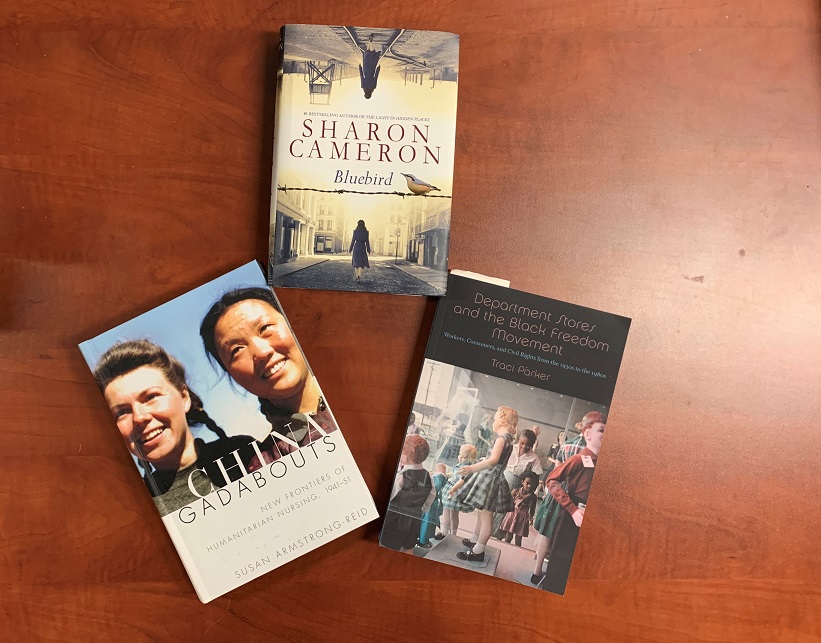
I’ve been lucky enough to serve as archivist for AFSC going on 15 years now. I still find myself surprised (and occasionally in awe) at the work, the connections, the reach of the AFSC throughout its over century-long history.
The early Board members of AFSC know the work they were doing would have great historical significance. When AFSC was less than 12 years old (in 1929), they voted to preserve the collection of documents generated over the years. Since then, AFSC archives have been used by scholars and researchers the world over and mentioned in hundreds of publications.
Here are just a few books to use materials from the AFSC archives.
“Department Stores and the Black Freedom Movement Workers, Consumers, and Civil Rights from the 1930s to the 1980s,” by Traci Parker, 2019, UNC Press.
The effort to obtain equal employment in department stores is an often-overlooked aspect of the Civil Rights movement. In Philadelphia, Boston, Chicago, Raleigh, and other major cities throughout the U.S., African American groups engaged in negotiations with store owners and management. AFSC’s supported these efforts. Our Jobs Placement Program started early in 1945 sought to not only increase opportunity for African American workers but “create better understanding” between the races. Author Traci Parker also explores how more effective strategies such as boycotts, protests, and legal challenges were critical to obtain more lasting change for African Americans in the workforce.
“China GADABOUTS: New Frontiers of Humanitarian Nursing 1941-1951” by Susan Armstrong-Reid, 2018, UBC Press
The Friends Ambulance Unit (FAU) was an international group of volunteers managed by the British Quakers. The FAU delivered relief and medical supplies to the people of China during the Sino-Japanese War. Management of the FAU was passed on to the AFSC in 1946 with the work expanding to include medical teams and training for doctors and nurses. The “GADABOUTS” was the nickname given to the nurses of the Friends Ambulance Unit in China who were required to “go anywhere do anything” (GADA). This book examines the role of both FAU and Chinese nurses and the ethical, professional, and personal difficulties they encountered. Western and Chinese nurses worked to navigate the gender, cultural, and racial politics, experiencing successes and failures to various degrees. Author Susan Armstrong-Reid drew from thousands of primary source documents held in AFSC’s archives.
“Bluebird” by Sharon Cameron, 2021, Scholastic Press
Most books that use records from the AFSC archives are of academic nature. But “Bluebird” is a young adult novel that takes place at the end of World War II. The story follows a young woman living in Nazi Germany who is forced to confront the truth about herself and her family. The reality drastically alters her beliefs about her background and the world around her. Author Sharon Cameron based the book on many real-life events and locations, including two refugee hostels managed by AFSC. Much of the novel takes place at the hostels, Powell House, in New York City, and Sky Island, in Nyack, New York. Several characters are based on individuals who worked at the two hostels. The author visited AFSC’s archives in 2019 and poured through the records, gleaning tidbits to incorporate into her story. In its end notes, she describes the AFSC records as “unbelievable in their detail.”